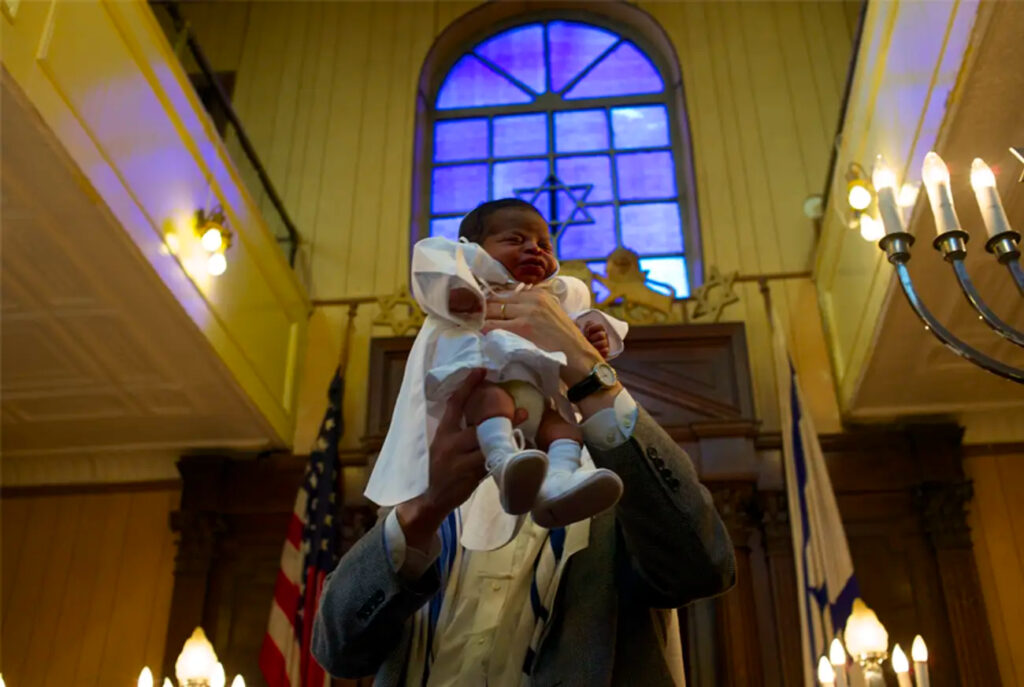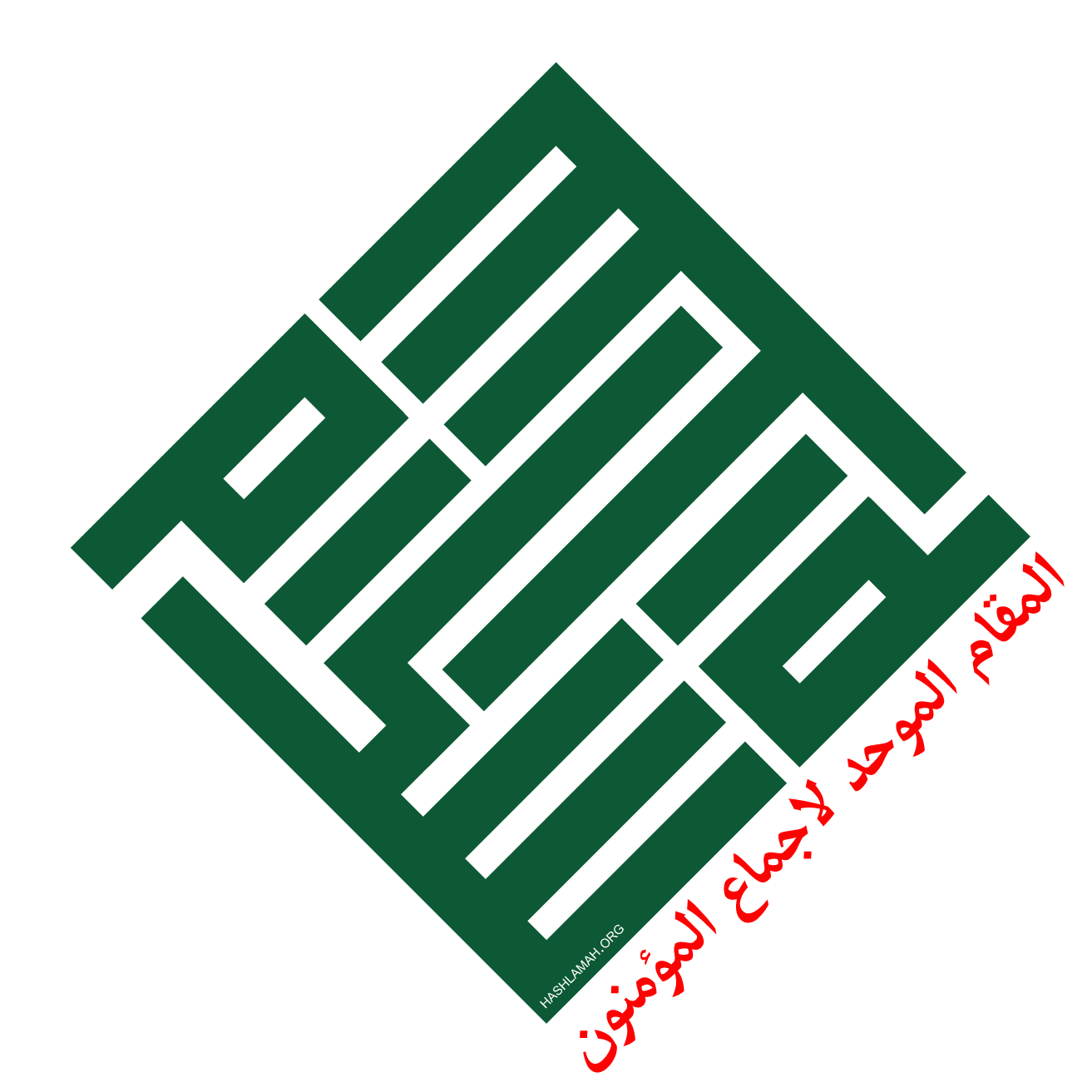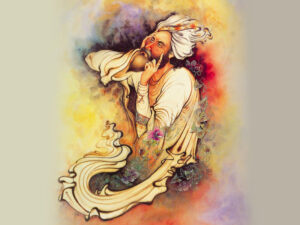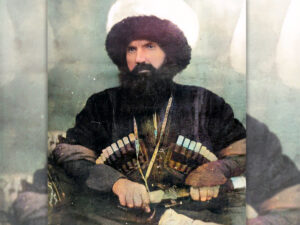Biblical Proof Against Hebrew Israelite Movement Claims That Jewishness is Racial and Genetically Paternal In Nature

The Hebrew Israelite movements are as diverse as they are controversial, but one thing that remains a point of contention between most of them and normative Judaism and Jewry (the same word in Hebrew, it should be noted), is the idea that Jewishness is racial in nature and is genetically passed down through the father alone to the child of any mother.
After the first of the Reasoning Sessions held in Yellow Springs, Ohio with self-identifying Hebrew Israelites, I was asked that for the second session – the following week – we restrict our debate on this particular topic only to Biblical citation. I accepted that challenge. These are some of points that I raised during our discussion…
While Jewish law applies patrilineal descent to other nations (Yevamot 78b), Nachmanides writes that matrilineal descent applied to the Jewish people from the time of Abraham and onwards (Commentary to Vayiqra 24:10). But is this just “later Rabbinic interpretation?” Certainly, this normative rabbinic view was seen to have been justified by the existence of some degree of Israelite nationhood from the time of the Patriarchs, which is suggested by the Talmud’s reference to Esav as legally an Israelite (Qiddushin 18a). “Bible-Only” Christians and Karaites – who likely trace to Diaspora Sadducees – however, see these as unfounded conclusions.
Still, with no actual transition from presumed patrilineal descent to matrilineal in Jewry, the onus (perhaps seemingly paradoxically) remains on those arguing for patrilineal-only descent to demonstrate their thesis that there was a patrilineal gold standard to begin with. They contend, however, that the Bible itself does just that. They say, “just look at all of the Israelites who married non-Jewish women,” in the literal text itself.
So yes, let us examine that, and why the Bible sometimes seems to have absolutely no problem with such marriage – and neither sees it as intermarriage, nor denounces it as sinful – and why other times it calls it a grave sin.
Indeed, in Ezra 10:3 we read “Now therefore let us make a covenant with our God to put away all the wives, and such as are born of them, according to the counsel of Ha’Shem, and of those that tremble at the Mitzvot of our God; and let it be done according to the Torah.”
וְעַתָּה נִכְרָת-בְּרִית לֵאלֹהֵינוּ לְהוֹצִיא כָל-נָשִׁים וְהַנּוֹלָד מֵהֶם, בַּעֲצַת אֲדֹנָי, וְהַחֲרֵדִים, בְּמִצְוַת אֱלֹהֵינוּ; וְכַתּוֹרָה, יֵעָשֶׂה
Now why would the returning Jewish people be told to not only divorce foreign wives, but also to abandon their Children born of non-Jewish mother’s?
Here Ezra says that this is actually commanded in the Torah’s Mitzvot. Many figures in the Tanakh, the “Bible,” married outside of the Children of Israel… at least if we are to imagine that these women did not convert.
- Joseph married an Egyptian woman, Asenath (Genesis 41:45).
- Moses married a Midianite woman (Exodus 2:11–21).
- Moses married another wife, an unnamed Kushite woman (Numbers 12:1).
- King David married women of non-Israelite ancestry, including a Philistine wife (2 Samuel 3). An interesting thing I like to point out in Hashlamah Project study circles in Israel and Palestine is that David was a refugee in Gaza, running from the ruler of Israel, and he also married a Palestinian (Filistini) woman.
- King Solomon also took wives who were not originally from the Jewish people (1 Kings 11:3). His wives were to have included the daughter of Pharaoh, as well as women of Moabite, Edomite, Sidonian, and Hittite origins (1 Kings 7:8; 11:1).
Why were they not told to divorce their wives and abandon their children? After all, we see in Genesis that Ishma`el was not abandoned by Abraham, he was halakhically an adult, and went with his mother – Ha’Ger – to the Hijaz region of Arabia and then returned. This is all there in the Bible if you are reading carefully.
Where does it say that?
If you are attentive, you will notice that the Biblical narrative says that Isaac and Ishma`el both together bury their father in the Land of Canaan (Genesis 25:9). How could this have been if not for the fact that later in life Ishma`el returned? Clearly word could not have been dispatched to Arabia, Ishma`el informed of his father’s passing and him then having time to return to bury his father with his brother – all before Abraham’s corpse rotted.
Rabbinic tradition has millennia-old midrashim about this return, and even about Ha’Ger becoming a very righteous woman and being given the holy name of Keturah (Genesis 25: 1; 1 Chronicles 1:32). The Torah is tribal story-telling at its finest. But we need not look to those stories for proof that the supposedly-“foreign” wives of these prophets were in fact not foreigners at all, they were converts – immigrants.
If that is so, however, why is there no mention of any conversion? Because it was already mentioned that they were from foreign origins. The fact that this was not denounced while other foreign marriages were is what tells us that conversion happened. Again, we must remember that the term that we translate as “conversion” today in English was simply gerut – immigration.
Who says to immigrants in the United States: “you are not a real American?”
Bigots.
No one else says such a thing. Why did the Bible not say such a thing? Because it didn’t believe such a thing. Instead, it regarded wives of foreign heritage to be “Israelites in all respects” – just as the rabbis did nearly 2,000 years ago (Bava Metzia 47b).
The idea that a foreign convert would continue to be talked about as a foreigner is a Western, bigoted assumption that is being brought to Western readings of the Bible. It is not something the Bible has any reason to state because there was not at that time even one society in the world who would have regarded immigrants as “not really” members of the society or tribe into which they immigrated.
Again, there is never any mention of Divine admonition for these intermarriages. The story of Pinchas and the Midianite woman (Numbers 25:6) also makes it quite clear that marriage to non-Israelites was Divinely prohibited.
In fact, this passage says that the Children of Israel were cursed because of this. But Exodus 6:25 tells us that Pinchas’ mother is “one of the daughters of Putiel” another name given for Jethro, father-in-law of Moses and priest of Midian. Pinchas killed a Midianite woman, but he himself had a Midianite mother! So why does he get away with it? The implication is that his mother converted – immigrated. Became an Israelite in all respects.
This is the same reason why these ancient prophets also got away with it, while Ezra’s audience did not. The distinction is obvious: Ezra was speaking of foreign wives who refused to convert or immigrate.
A child is naturally close with their mother. Hating one’s mother is a symptom of the diseased Western heart. Children grow inside of their mother for nine months. If the mother did not convert and instead raised the child in a tradition antithetical to the Torah, then this would be a grievous violation of the Torah, in the eyes of the prophets – again, according to the Bible.
This means that the normative tribal process of immigrating into the tribe was in fact what had naturally happened in the contexts of accepted marriages to women of non-Israelite ancestry. That is, again, because once they converted, or immigrated, they were “Israelites in all respects.”
If we are to doubt this reality then we must believe that Joseph, Moses, David and Solomon were brazen violators of the Torah – and perhaps stranger still, that the Biblical narrative has no Divine denunciation of these marriages. In fact, when the prophetess Miriam speaks out against Moses’s marriage to his Kushite wife, she is cursed by the Creator with temporary leprosy, until she made teshuvah from this colorist-based objection that she masked with claims of concern for pedigree.
Why weren’t conversions mentioned?
So why weren’t conversions mentioned and spelled out as often as they apparently occur throughout the Biblical narrative? The conversion process was obvious to the reader. It was so normal, so part of everyday life among the Children of Israel that it needed no mention.
My first wife underwent conversion for our children to go to our local Hebrew school. Her mother had been of patrilineal Jewish descent, and she had another child with a Reform Jew which recognized her as Jewish. But at our synagogue this still required conversion for her. This has never once been spoken of in our local Jewish community. Aside from her Jewish name on our Ketubah being Shlomit bat Avraham, there is no indication that she converted – again, even though she is of paternal Jewish background on her mom’s side (and has Israelite Igbo roots on her father’s for that matter). These are simply the Jewish community’s normative rules of becoming Jews – such as the “many Persians” in the Megillat Esther who mityhadim – “became Jews” (Esther 8:17).
Why mention a woman simply having to immerse in a mikvah and accept the covenant? That’s literally all that is required for a woman to immigrate or “convert” to Jewry (Yahadut). These were all everyday practice for all Jews to be taken for granted. Many Jews today in the Chabad movement still make it a habit of reviving the ancient tradition of daily tevillah.
In Shi“ism merely making salat in Arabic is tantamount to conversion, as one bears witness to the Shahadah in the prayer. So should we expect every conversion through marriage in Islamic history to be detailed as well? Of course not – because it was normal and continues to be normal. People don’t obsess about that non-Arab background of Persians or Indonesians. Arab Muslims are actually a minority in the Islamic world. No one talks about this because it is pointless to – everyone knows about it and there is no controversy.
We don’t write about things that don’t matter to us. The fact that people were from ancestry other than Israelites and then became Israelites through immigration did not matter to anyone in the ancient world. That is because these are modern European obsessions with pedigree. Such obsession is foreign to the Hebrew Bible.
It would be superfluous for the Bible to account all the details of how any person became part of our covenantal people. The reader, being a member of that covenant, understands this without needing it spelled out. That is because the audience of the Hebrew Bible was entirely composed of people who know this and would have thought it strange to have it spelled out for them. Still, we see evidence for this widespread understanding in the examples cited.
Paul, the Founder of Christianity, Was Jewish Only Through His Mother
Interestingly, both Christians and those who have been raised in Christianity who embrace Hebrew Israelite roots, often cite the Christian Testament and Epistles of Paul as key sources of their theology and ideas about Israelite pedigree. This is because Paul himself boasts of Israelite pedigree – explaining himself a Benjaminite Jew, much like his namesake King Saul and like the righteous Tzaddiq Mordecai for that matter.
The Luke-Acts scroll claims twice that Paul is of Israelite heritage (Acts 16:37-38, Acts 22:25-28). In the latter passage, however, Paul states that he was born a Roman citizen. His citizenship status is the reason he can successfully appeal to the emperor (Acts 25). Some could buy Roman citizenship, but it was pricey (Acts 22:28). The privileges of citizenship explain how Paul escaped flogging in Acts 22:25–27 and was able to appeal for a hearing before Emperor Nero in Acts 25:10–11. It could be granted to someone of non-Roman heritage, but Acts states that Paul was a Roman citizen by birth (22:28), more affirmatively describing his father belongs to Rome. This means that citizenship was not conferred upon Paul. This means his father was not Jewish, his mother was.
Paul’s disciple Timothy, for that matter, was Jewish through his mother-only. The author of Luke-Acts portrayed Timothy as Jewish (Acts 16.1–3) in light of his mother’s status and thus was required to undergo circumcision. Paul makes it clear that non-Jews are not expected to circumcise – a perfectly Jewish idea. Because his father was not Jewish he had never undergone circumcision. He was the product of a mixed marriage of Jew to non-Jew. His father raised him as a Roman – which meant following Roman religion. Once he fell in with Paul, he was expected by practicing Jews of the Jerusalem Jamsean community to be circumcised. There is no mention in the Christian Testament of him not being regarded as Jewish because his father was not.
Ancient Jewish Authorities on the Mass Conversions into Jewry (Yahadut)
Rashi, the preeminent Medieval Torah commentator, became renowned for his simple reading of the literal words of the Torah, and his commentary thereupon. He notes that the Torah speaking of an “Erev rav” was “a mix (taʿarovet) of nationalities who converted” (ערב רב – תערובת אומות של גרים). In a similar vein, the 10th/11th century Midrash Exodus Rabbah (18:10) envisions a split among the Egyptians between those who joined the Israelites and those who faced the wrath of God:
It is analogous to a king who throws a party for his son and kills his enemies. The king says: “Anyone who is happy for me, come to my son’s party. And anyone who hates me will be killed with my enemies.” Thus did God throw a big party for the Israelites when he redeemed them. God said: “Anyone who loves my son should come and celebrate with my son.” The good Egyptians came and participated in the Paschal offering with the Israelites, and left with them, as it says (Exod 12:28), “and an ʿerev rav went up with them.” All those who did not want Israel to be redeemed died with the firstborn, as it says (Ps 78:51), “and he struck down all the firstborn among (i.e., along with) the Egyptians.”
משל למלך שעשה שמחה לבנו והרג שונאיו אמר המלך כל מי ששמח לי יבא לשמחת בני וכל מי ששונא לי יהרג עם השונאים, כך האלהים עשה שמחה לישראל שגאלן אמר האלהים כל מי שאוהב את בני יבא וישמח עם בני, הכשרים שבמצרים באו ועשו פסח עם ישראל ועלו עמהם, שנא’ (שמות יב) וגם ערב רב עלה אתם, וכל מי שרצו שלא יגאלו ישראל מתו עם הבכורים, שנאמר (תהלים עח) ויך כל בכור במצרים.
There is no time in the Torah where this Erev Rav was commanded to be separate from the Children of Israel, nor was marriage to them forbidden. That is because it wasn’t. They were converts. Immigrants. Had they not been “Israelites in all respects” then marriage to them would have been considered intermarriage, and would have been denounced, as it was later by the Biblical prophets.
Rabbinical commentary is greatly helpful and elucidates so much depth and knowledge to the Torah that it is fool-hearty to disregard it. This would be akin to traversing territory one never had stepped foot in and telling the tour guides that they are better off without their input.
Even if that territory was your ancestral land, but you had never been there before, what kind of fool would go to Israel or Africa for that matter, and just start walking around with no map, no guides having been consulted before the trip or during? Certainly even if you did not go on a guided tour, you would consult supplemental sources to guide you on your trip, would you not? You wouldn’t think that you somehow had this knowledge of the land in your DNA itself? If you stubbornly and arrogantly insisted on this, you would end up lost.
While we benefit greatly from the wisdom of the sages of old (and of today), there is no need to rely upon them to prove that mothers who did not convert to Yahadut in the Bible had children who were not regarded as Jewish.
This is all right there in the Bible, in black and white.





